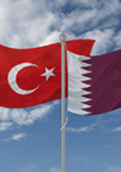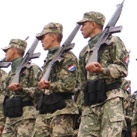The Turkish Military Base in Doha: A Step towards Gaining “Strategic Depth” in the Middle East?
The nostalgia among a section of the AKP to recreate the Ottoman past through economic and geopolitical integration has been the driving force behind Turkey’s recent assertive postures in regional matters including the Qatar crisis.
- Md. Muddassir Quamar
- September 26, 2017













